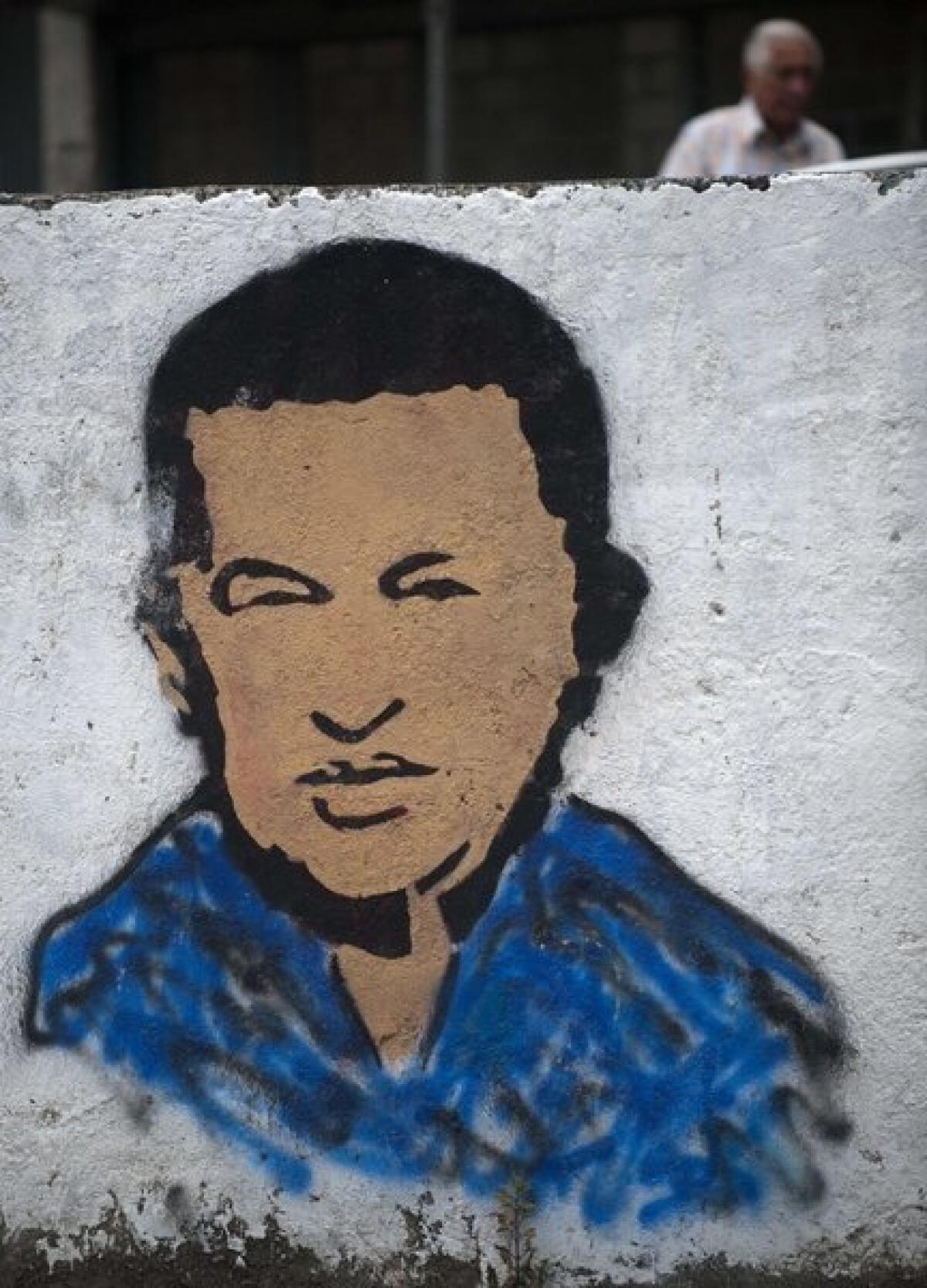Havana’s well-worn welcome mat

- Share via
Some analysts are suggesting that Cuba is the place to be these days for anyone interested in understanding what’s really going on in the Andes region. That makes sense given recent events unfolding in Havana.
For starters, Venezuelan President Hugo Chavez has spent the better part of a month in a Cuban hospital recovering from a fourth surgery for an undisclosed form of cancer. His prolonged stay in Havana, and his failure to attend Thursday’s inauguration in Caracas, have fueled a bitter battle in his homeland over whether Chavez is too sick to remain as president. Now Venezuela’s vice president, Nicolas Maduro, is traveling to Havana to visit the ailing leader and to consult with Chavez’s medical team. He’s not alone. In recent days, Peru’s and Argentina’s leaders have made stops in Cuba to see the leftist leader.
And Cuba is also the country where Colombia’s government and leftist rebels known as the Revolutionary Armed Forces of Colombia, or FARC, have been holding peace talks. The negotiations, the first in nearly a decade, are aimed at ending Colombia’s decades-long armed conflict that has claimed thousands of lives and displaced millions.
So what makes Cuba so alluring a spot? No doubt the country’s tight control over the flow of information and news. Just consider the near-total lack of leaks on either Chavez or the peace talks.
Another reason behind Havana’s appeal is Cuban leaders Fidel and Raul Castro’s strong ties to Chavez, as well as the FARC rebel leaders.
ALSO:
Hugo Chavez: What’s the prognosis?
More to Read
A cure for the common opinion
Get thought-provoking perspectives with our weekly newsletter.
You may occasionally receive promotional content from the Los Angeles Times.









